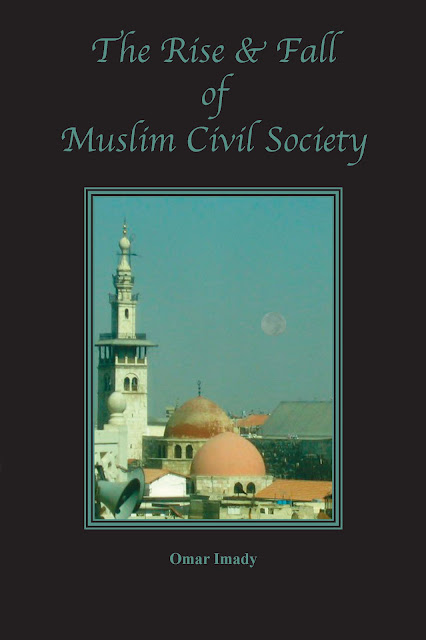The Story behind the Book: The Rise and Fall of Muslim Civil Society (O. Imady)

Today's book back story is about The Rise and Fall of Muslim Civil Society by Dr. Omar Imady. From the publisher: In 2005, MSI Press was a very young specialty press, established to publish materials for promoting higher levels of language learning, associated with the Coalition of Distinguished Language Center. Dr. Omar Imady, originally from Damascus, was a professor at the New York Institute of Technology in Amman, Jordan, where Dr. Betty Lou Leaver, co-founder of MSI Press LLC, was dean. He approached her with the suggestion of a modest expansion of publishing lines -- adding books on culture to those on language. The first two to be published was his book on metaphors of Islamic humanism and the book, The Rise and Fall of Muslim Civil Society. The latter was based on his dissertation at the University of Pennsylvania and served an important, and broader, function: to shed light on the institutional roots of organizations that sanction the use of indiscriminate v...




